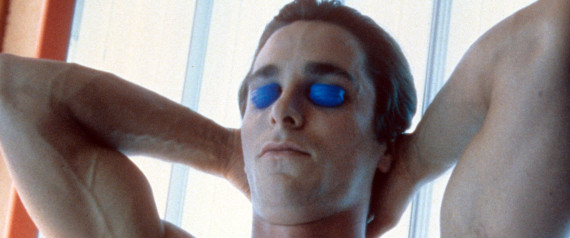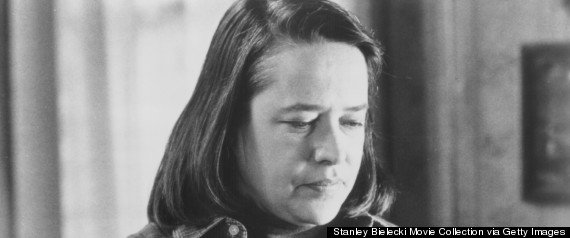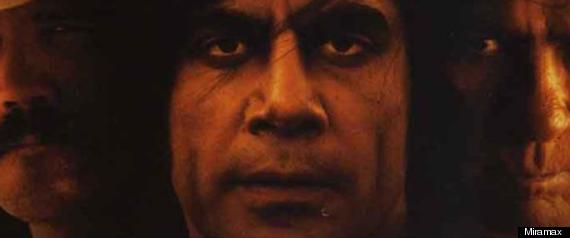No villain is 100% evil. Most villainy is mitigated by complicating factors: a cocktail of nature and nurture viciously shaken into a character whose nastiness is often hard to understand, or easy to misunderstand. My novel Hyde seeks to clear one such villain--Edward Hyde--from his unfair reputation as a fiend of "pure evil." But there are other literary malefactors who perhaps deserve similar representation, or at least an appraisal of their mitigating circumstances.
Here are some scoundrels we might better understand.

1. Patrick Bateman from American Psycho
Bateman makes for a tough defendant. He murders his "friends" and tortures prostitutes with heinous ingenuity. But his amorality mirrors in miniature the heartlessly vampiric, ethically vacuous culture of Wall Street which treats women as disposable mannequins and other peoples' livelihoods as its lifeblood. Bateman has no polestar for decency in this vacuum of human warmth, this black hole of greed. Blame the institution, not its wretched servant.
2, 3. Regan and Goneril from King Lear
Woe to any father with daughters like these. They cast out their old man, undermine their husbands, and Regan orders poor Gloucester's eyes ("vile jelly") enucleated. Yet they are the seed of a vainglorious king in need of insincere pandering, who equates demonstrations of love with property. And they are women in a world of power-ravenous men, expected to meekly comply. How else to rebel if not by ruthless duplicity? After all, sweet, good Cordelia fares no better in the end.
4. Freddie Montgomery from The Book of Evidence
True, in a moment of desperation Freddie kidnaps a maid and bludgeons her unconscious with a hammer in a stolen car, then leaves her to die. But he is fully aware of his depravity (which counts for something), and his guilty conscience guides him toward inevitable capture. He is actively trying to hit rock bottom, the negative apex of his wasted life, by committing the worst atrocity he can think of. I mean, things can only go uphill from there.

5. Hannibal Lecter from Silence of the Lambs
Dr. Lecter needs no defense attorney; he could explain his pathology more eloquently than any court psychologist, if he felt so inclined. There are allusions to a childhood in war-torn Europe and a murdered sister. But in truth, Hannibal Lecter simply sees through the hypocritical taboo against eating other human beings. Nearly every animal will consume its own kind. Why should humans be any different--we who are capable of genocide, gross injustice, indifference, and mass consumption of every body part of every living creature on the planet? Why not sup on some human brains and liver in the bargain? (With a nice Chianti, of course.)
6. Grenouille from Perfume
Grenouille is blessed with a nose like Mozart's ear, yet he has no personal scent of his own. To fulfill his grand ambition--the creation of a master angelic perfume--he must do what perfumers do: rob living things (beautiful virgins, in Grenouille's case) of their smell. And this is pre-revolutionary France, where the rich live like kings and the poor worse than dogs. In such a moral system, can we expect our orphaned, abused, brilliant Grenouille to value a privileged virgin's life any higher than a violet's?

7. Annie Wilkes from Misery
Annie is every writer's worst nightmare: the superfan turned stalker-kidnapper. But her captive Paul Sheldon is not wholly innocent. He's come to resent the Misery romance series which has made him beloved and rich, and he kills off his leading lady without a thought for the fans who adore her like family. Annie is a chilling reminder of the responsibility writers bear to their characters and their audience, without whom even Stephen King would be just another failed novelist.
8. Kurtz from Heart of Darkness
From his noble beginnings, with all his lofty intentions, Kurtz has certainly lost his way--the shriveled African heads on stakes which adorn his camp indicate well the warlord he's become. Yet he, too, is the servant of an evil machine: the Company which sent him to reap ivory from the heart of the "dark continent." Kurtz has simply done his job too well, and gone mad in the process. The "horror" he sees in the end is the nightmare of humanity's rape and plunder of Mother Earth in the name of progress. A final moment of clarity, you might say.

9. Anton Chigurh from No Country for Old Men
Relentless and remorseless, armed with his cattle gun and his fateful coin, McCarthy's unstoppable assassin certainly seems beyond palliating explanations. He has no past, no future, no human desire outside of performing his mercenary duties to perfection. Perhaps this is because he is not truly a human being. He doesn't merely flip his deciding coin of chance; he is the coin of chance, the embodiment of ineluctable fate itself. As he tells Moss's widow at the end, "I got here the same way the coin did." Can you truly blame a quarter for making you lose?
10. Victor Frankenstein from Frankenstein
It might seem that Frankenstein's monster should cap this list, rather than his creator. Yet Dr. Frankenstein gave birth to his creature and then immediately rejected him, turning away in revulsion. All the "monster" wanted was to be loved, to have someone to love, and Frankenstein denied him these earnest, innocent pleas, thus sowing the seeds of hatred and rage. Victor Frankenstein--the epitome of over-ambition coupled with reckless neglect--is the father of human suffering. Symbolically, he is the reason villains exist at all.